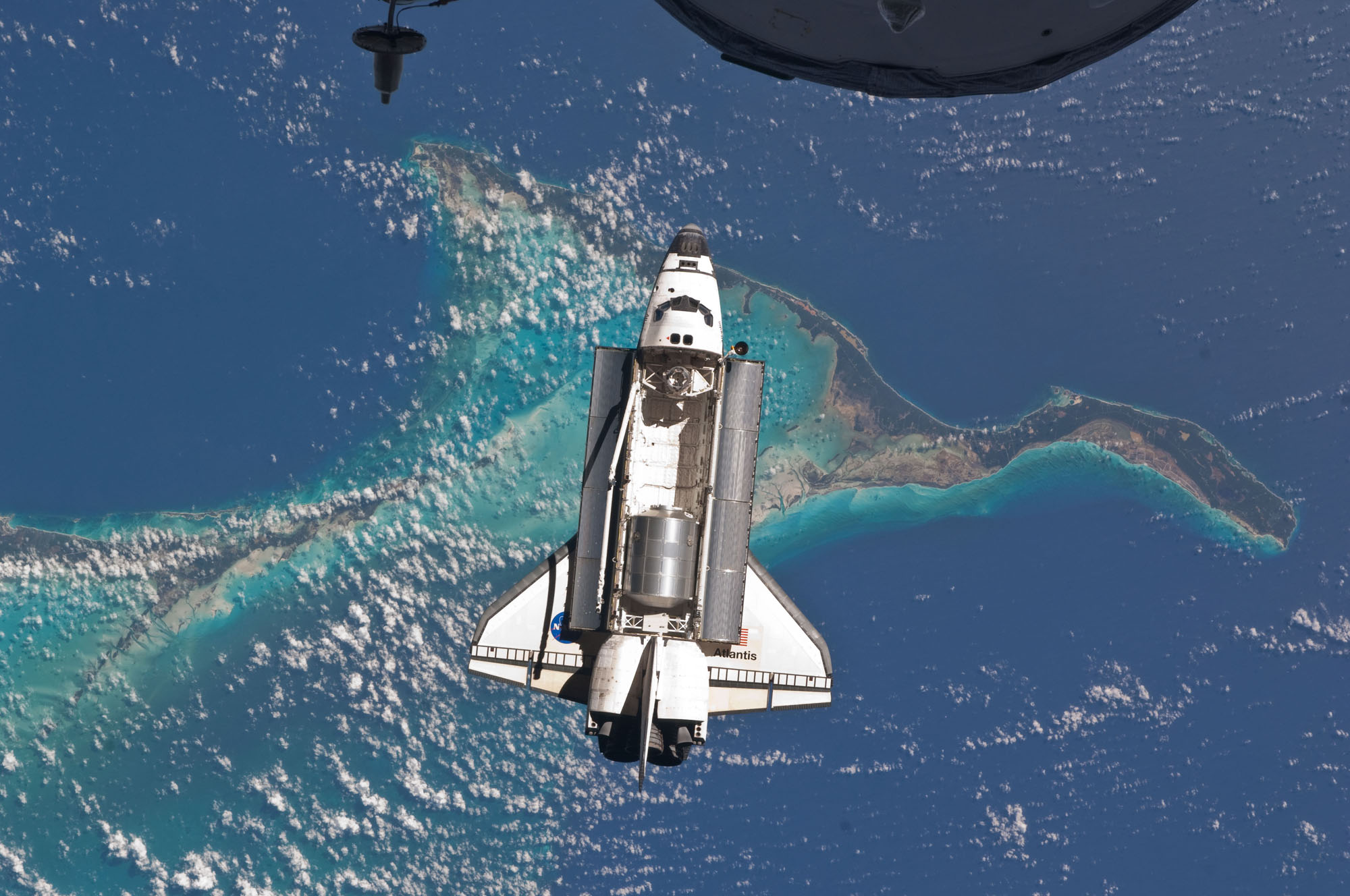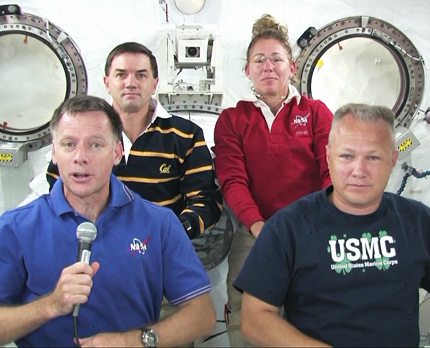
Atlantis Astronauts See 'Bright Future' After Shuttle Program

HOUSTON – The astronauts flying on NASA's final space shuttle mission are rounding out a 30-year program amid uncertainty about its successor, but the shuttle Atlantis' veteran spaceflyers are confident about the future of human spaceflight.
Commander Chris Ferguson, pilot Doug Hurley, and mission specialists Sandra Magnus and Rex Walheim have sailed past the halfway point of their 13-day mission to the International Space Station. Atlantis is scheduled to land in the predawn hours at NASA's Kennedy Space Center in Florida on July 21.
As the shuttle's wheels roll to a stop for the final time, NASA's shuttle program will officially come to an end, and for at least the next several years, the agency will rely on Russian-built Soyuz spacecraft to ferry American astronauts to and from the space station.
But, for the members of NASA's astronaut corps, there are plenty of reasons to stick around, the shuttle crewmembers said. [Photos: NASA's Last Shuttle Mission in Pictures]

"We'd love a shot at flying another vehicle, so definitely," Hurley said. "We've got opportunities prior to that, we've got multiple flights to the International Space Station — we're going to crew this beautiful complex for 10 years plus. There's plenty of opportunities. Why not stay? It's a bright future."
And flying more than 220 miles (354 kilometers) above Earth inside a massive orbiting complex, the astronauts have a unique perspective of our planet, and the possibilities that lie beyond the station and low-Earth orbit.
"Just over the last couple nights, we’ve had some incredibly dramatic passes [over the Earth]," Ferguson said. "There is a little part of everybody who looks at something like that and says, 'I cannot believe we're here, this is absolutely fantastic, we absolutely must continue this.' And we must go beyond. We must go back to lunar orbit, and perhaps to an asteroid. We need to continue pushing on, we need to press technology. Humans are destined to explore, it's what we do, and we need to continue."
Get the Space.com Newsletter
Breaking space news, the latest updates on rocket launches, skywatching events and more!
NASA is retiring its three-orbiter fleet to focus on developing launchers and spacecraft for exploration deeper in space, to destinations like an asteroid or Mars.
Commercial companies are vying to take over routine flights to the space station in low-Earth orbit to deliver supplies, and eventually astronauts, to the orbiting outpost.
Atlantis' four astronauts, along with the six crewmembers living aboard the International Space Station, will receive a special call from President Barack Obama at 12:29 p.m. EDT (1629 GMT) today. With lawmakers battling over the support and funding of key NASA programs, Atlantis' commander offered words of advice ahead of today's chat with the Commander-in-Chief.
"There's no doubt that this is a very dynamic time," Ferguson said about the climate surrounding the shuttle program's retirement. "We've had a lot of major programs, vibrant and very interesting programs come and go at NASA without coming to fruition. A lot of that is politics driven, a lot of it is funding driven, a lot of it is due to dynamic events like, for example, the loss of Columbia. If there's one thing we could do to focus efforts is to just appeal to Congress to focus on the long term. Look at the horizon, don't look one or two years into the future, but look at 10 years and see where you want this nation to be."
You can follow SPACE.com Staff Writer Denise Chow on Twitter @denisechow. Visit SPACE.com for complete coverage of Atlantis' final mission STS-135 or follow us @Spacedotcom and on Facebook.
Join our Space Forums to keep talking space on the latest missions, night sky and more! And if you have a news tip, correction or comment, let us know at: community@space.com.

Denise Chow is a former Space.com staff writer who then worked as assistant managing editor at Live Science before moving to NBC News as a science reporter, where she focuses on general science and climate change. She spent two years with Space.com, writing about rocket launches and covering NASA's final three space shuttle missions, before joining the Live Science team in 2013. A Canadian transplant, Denise has a bachelor's degree from the University of Toronto, and a master's degree in journalism from New York University. At NBC News, Denise covers general science and climate change.









